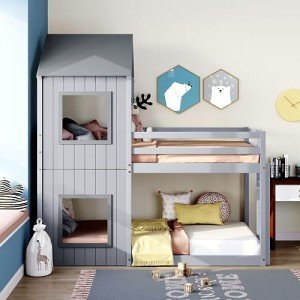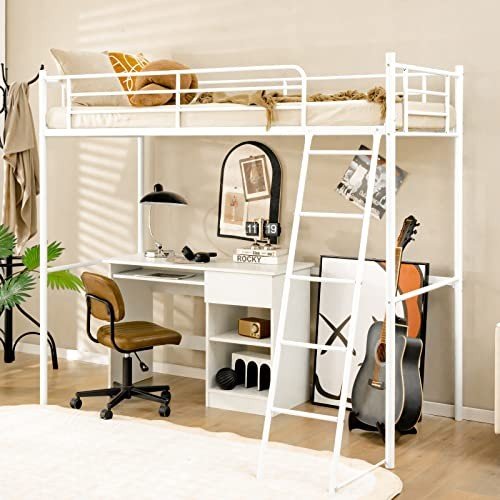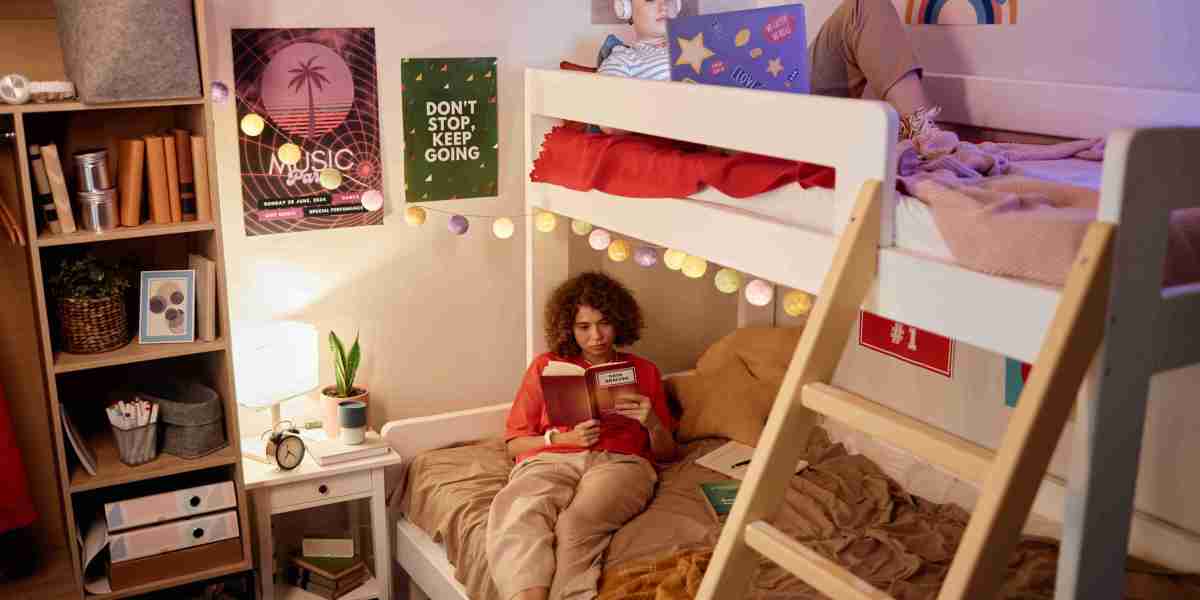The Ultimate Guide to Kids Bunk Beds: Maximizing Space and Fun
With the increase of vertical living and smaller sized spaces, the popularity of bunk beds has actually skyrocketed amongst households. Bunk beds not just offer a useful sleeping option, particularly in shared spaces, however they also bring a component of fun into a child's life. This thorough guide digs into the features, benefits, and considerations of kids' bunk beds, making it simpler for moms and dads to choose the right bed for their little ones.

Functions of Kids Bunk Beds
Bunk beds are versatile furniture pieces that serve more than a single purpose. Here are some essential features to think about:
| Feature | Description |
|---|---|
| Product | Bunk beds can be built from wood, metal, or a mix of both, offering differing levels of durability and design choices. |
| Security Features | Many bunk beds come equipped with guardrails, secure ladders, and topped assistances for security, specifically essential for young children. |
| Design Variety | Options vary from timeless styles to modern-day designs, making sure a match for any space design. |
| Space-Efficiency | Bunk beds utilize vertical space, making them ideal for smaller sized rooms. |
| Convertible Options | Some models can be converted into 2 separate beds, offering versatility as kids grow. |
| Storage Solutions | Some bunk beds feature integrated storage drawers or racks, helping to keep the room arranged. |
Advantages of Kids Bunk Beds
Buying a bunk bed comes with several advantages:
- Space Saving: Bunk beds optimize floor space, allowing for more backyard or storage options.
- Fun Factor: With a bunk bed, Kids bunk Bed belong that promotes creativity and companionship during sleepovers or playdates.
- Cost-efficient: Instead of purchasing two different beds, a bunk bed can accommodate 2 kids simultaneously, saving money in the long run.
- Flexibility: Many bunk beds can be disassembled or converted into twin beds, making them a long-term financial investment as kids's needs change.
- Social Interaction: Bunk beds motivate family bonding and friendships, providing an inviting space for children to share stories and laughter.
Factors to consider When Choosing a Kids Bunk Bed
When picking the perfect bunk bed for a child, parents must take into account numerous elements:
- Safety Standards: Ensure that the bunk bed complies with security guidelines and includes necessary safety functions.
- Age Appropriateness: Different models cater to different age. For example, standard bunk beds might not be suitable for more youthful children.
- Space Dimensions: Measure the bedroom to ensure the bunk bed fits appropriately, enabling space to move easily.
- Weight Capacity: Consider the weight load of each bed and ensure it accommodates the kid's weight conveniently.
- Style Preferences: Letting children take part in the selection process can assist them feel more excited about their new bed.
Kinds Of Kids Bunk Beds
Bunk beds come in various styles and setups to suit various requirements:
| Type | Description |
|---|---|
| Standard Bunk Bed | A classic style with one bed stacked on top of another, usually utilizing a ladder to access the top bunk. |
| L-Shaped Bunk Bed | Features 2 bunk beds connected in an L-shape, frequently more spacious and suitable for kids sharing a space but needing a bit more space. |
| Triple Bunk Bed | Consists of three stacked beds, suitable for maximizing sleeping arrangements in extremely limited areas. |
| Loft Bed | A raised bed with space below that can function as a backyard, research study corner, or extra storage. |
| Futon Bunk Bed | Combines a bunk bed on leading with a futon or couch beneath, making it great for pajama parties and making the most of space usage. |
| Convertible Bunk Bed | Can be separated into two specific beds, using flexibility as children's requirements change. |
Caring for Kids Bunk Beds
Keeping bunk beds is important for ensuring durability and security. Here are some simple care practices:
- Regular Inspections: Check the bed routinely for loose screws and tightened up bolts to ensure stability.
- Tidiness: Keep bed linen tidy and fresh, turning mattresses for even use.
- Guardrails: Ensure guardrails are protected and in location, especially if kids tend to move a lot in their sleep.
- Air Circulation: Ensure the bed has enough air flow, avoiding wetness accumulation that can result in mold or mildew.
Frequently Asked Questions About Kids Bunk Beds
Q1: At what age can a kid securely utilize a bunk bed?
A1: Generally, children aged 6 and older are thought about safe to utilize the upper bunk due to the height and stability aspects involved.
Q2: Can I place a bunk bed near a window?
A2: It is a good idea to avoid positioning a bunk bed near windows to lower the threat of falling or injuries.
Q3: Are bunk beds safe for younger children?
A3: While some contemporary bunk beds feature security features accommodating younger kids, it is typically advised to wait until they are older, usually over six years.
Q4: What is the normal weight limit for leading bunks?
A4: Weight limitations vary by design but normally range from 150 to 250 pounds. Always describe the manufacturer's requirements.
Q5: How frequently should I examine the bunk bed's security functions?
A5: It is a good idea to carry out a security check every couple of months or whenever you observe any indications of wear.
Kids' bunk beds function as a strategic option for families wanting to take full advantage of space while offering an enjoyable and appealing sleeping environment for their kids. With a range of options readily available-- from standard styles to loft beds-- parents have the flexibility to choose something that fulfills their household's specific requirements. By considering crucial elements such as safety, space suitability, and their kids's preferences, parents can make an educated choice, making sure that each child is delighted about bedtime while gaining from a well-organized room.









